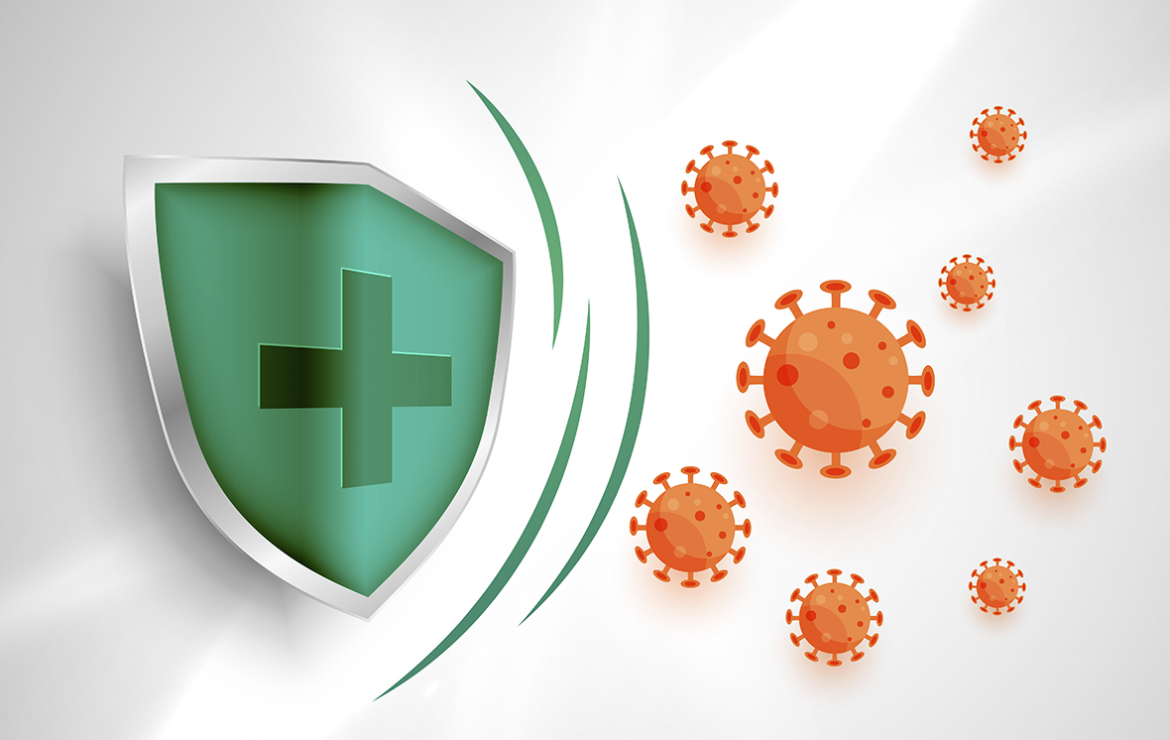What is the immune system?
Consisting of a complex network of cells, tissues, and organs, the immune system is the first line of defense for the human body against diseases, germs, toxins, tumors, and other dangerous factors to which humans are regularly exposed.
The importance of the immune system
Maintaining the body’s internal balance:
A healthy person’s body works in harmony, however, illness and disorders can disrupt this balance, and the immune system fights the disease and restores balance.
Furthermore, it can distinguish between friendly cells and enemy cells so it does not attack its cells or use its weapons to destroy the body’s defenses because when this occurs, it causes autoimmune disorders that lead to many diseases such as rheumatoid arthritis and thyroiditis.
Fighting infections:
The immune system plays a vital role in combating infections caused by bacteria, viruses, and fungi, and bringing risk factors under control.
How to boost your immune system?
The immune system develops strength and effectiveness when it receives the required attention in the different stages of life, starting from the mother’s womb.
It is also possible to enhance immunity by adopting healthy lifestyles, as daily habits and behaviors help the body strengthen its natural defenses against viruses and bacteria which cause diseases, and such healthy behaviors include:
Adopting a healthy balanced diet
Your diet must include an adequate portion of every vitamin, nutrient, and mineral your body needs, and foods that enhance immunity include:
Vegetables: vegetables of all colors and shapes are beneficial, and some such as garlic, onions, hot peppers, ginger, spinach, broccoli, carrots, and sweet potatoes can play a vital role in boosting immunity because they are rich in beta-carotene, vitamins, minerals, and antioxidants, which produce anti-inflammatory substances and contribute to increasing white blood cells that boost the immune system’s ability to fight infection.
Fruits in general and citrus in particular: fruits rich in vitamin C, can boost the immune system by enhancing the activity of phagocytes in the blood and increasing the production of white blood cells, however, the body cannot store vitamin C, so you have to regularly consume food rich in vitamin C, such as lemons, oranges, cranberries, strawberries, grapefruit, guava, and kiwi.
Probiotics: Probiotics are beneficial bacteria residing in the intestines, which help boost the immune system and improve digestion, as well as produce a natural antibiotic that eliminates harmful intestinal microbes. Therefore, you must regularly consume foods rich in probiotics such as yogurt, dairy products, and pickles.
Nuts: walnuts and almonds contain amino acids, vitamin E, and antioxidants that interact with some enzymes to support the immune system.
Whole grains: pumpkin and sesame seeds contain amino acids and selenium, which boost immunity.
Fish: sardines, salmon, tuna, herring, and mackerel contain vital proteins for building the cells that fight germs and viruses, as well as omega-3 fatty acids, which regulate the immune system’s functions.
Green and black tea: Both are rich in “flavonoids”, a type of antioxidant that boosts immunity, however, green tea is richer than black tea and contains other powerful antioxidants.
Drinking water
Adequate water intake plays a critical role in flushing out toxins from the body and maintaining a proper fluid balance in the body, therefore it effectively boosts the body’s immunity.
On the other hand, dehydration causes headaches, fatigue, exhaustion, loss of concentration, and digestive problems, in addition to negatively impacting the kidneys and heart.
Physical activity
Physical activity stimulates the production of white blood cells, which in turn boost the immune system, it also helps prevent diseases caused by lack of movement such as diabetes, cardiovascular diseases, obesity, and bone health issues.
Getting enough sleep
Getting adequate sleep regularly can significantly boost the immune system, by boosting the health of cells.
Avoiding unhealthy habits and behaviors
Smoking: this unhealthy habit regularly exposes the human body to carbon monoxide, nitrogen oxides, cadmium, and other chemicals that can inhibit the growth of immune cells and interfere with their function.
Excessive use of antibiotics: excessive antibiotics use destroys beneficial bacteria as well, which allows fungi to grow in their place, leading to fungal diseases.
Mental health
Mental health is as important and necessary as physical health, because it affects every system in the human body, especially the immune system.
Stress stimulates the release of hormones to deal with an intense situation, however, if the situation is not resolved and stress persists, problems occur such as muscle pain, headache, sleep disorders, and other symptoms.
Vaccines
Vaccines are one of the most effective means of protection against infection, and they are particularly important for the following groups:
Children and infants
Pregnant women
The elderly
People with a compromised immune system
People with chronic diseases
pilgrims
Travelers to endemic areas
By: Dr. Badreyya Al-Harmi, Consultant Public Health, Emirates Public Health Association













